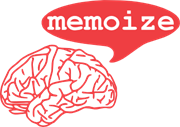All artifacts are open access. This means that you can freely download and use them. Additionally, please make sure to cite the associated publication.
Algorithms and Datasets for Epilepsy Analysis
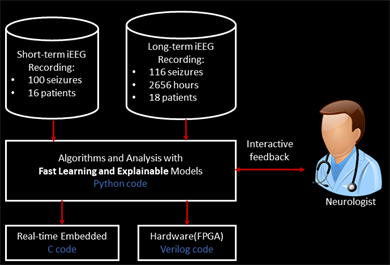
In this link, we provide FREE datasets (short-term and long-term) and source codes (Python, C, and Verilog) based on human intracranial electroencephalography (iEEG) recorded and analysed during pre-surgical evaluations of patients with pharmacoresistant epilepsies.

Collection of Hyperdimensional Computing Projects
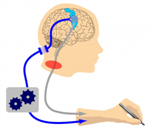

In this github repository we provide a comprehensive collection of projects using hyperdimensional computing. This covers a wide range of learning and classification tasks implemented with Matlab, Python, C, VHDL, Verilog.



Approximate Computing Projects
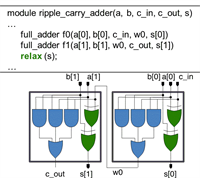
Language Support for Approximate Hardware Design (Axilog)
We introduce Axilog, a set of language annotations, that provides the necessary syntax and semantics for approximate hardware design and reuse in Verilog. Axilog is available to download from [here].
We introduce Axilog, a set of language annotations, that provides the necessary syntax and semantics for approximate hardware design and reuse in Verilog. Axilog is available to download from [here].
An Approximation Workflow in FPGA Acceleration (GRATER)
We devise, GRATER, an automated design workflow for FPGA accelerators that leverages imprecise computation to increase data-level parallelism and achieve higher computational throughput. The core of our workflow is a source-to-source compiler that takes in an input kernel and applies a novel optimization technique that selectively reduces the precision of kernel’s data and operations. GRATER source-to-source compiler (in Python), with OpenCL kernels are available to download from [here].
We devise, GRATER, an automated design workflow for FPGA accelerators that leverages imprecise computation to increase data-level parallelism and achieve higher computational throughput. The core of our workflow is a source-to-source compiler that takes in an input kernel and applies a novel optimization technique that selectively reduces the precision of kernel’s data and operations. GRATER source-to-source compiler (in Python), with OpenCL kernels are available to download from [here].
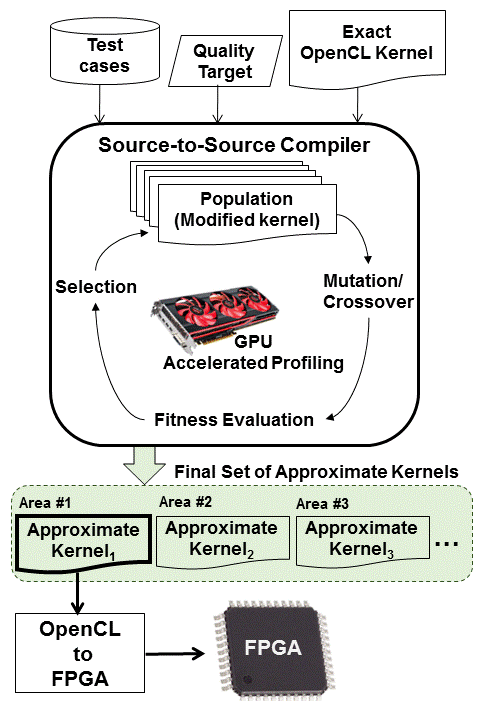
Memoization: Approximate Instruction Reuse
Memoization refers to methods that normally use pre-computed results in place of actual computation at runtime. We focus on instruction-level memoization for temporal instruction reuse within a core and spatial instruction reuse across neighbor cores in SIMD architecture. We propose methods for inexact spatio–temporal instruction reuse in GP-GPUs. A modified version of Multi2Sim supporting temporal memoization is available to download from [here].
Memoization refers to methods that normally use pre-computed results in place of actual computation at runtime. We focus on instruction-level memoization for temporal instruction reuse within a core and spatial instruction reuse across neighbor cores in SIMD architecture. We propose methods for inexact spatio–temporal instruction reuse in GP-GPUs. A modified version of Multi2Sim supporting temporal memoization is available to download from [here].
